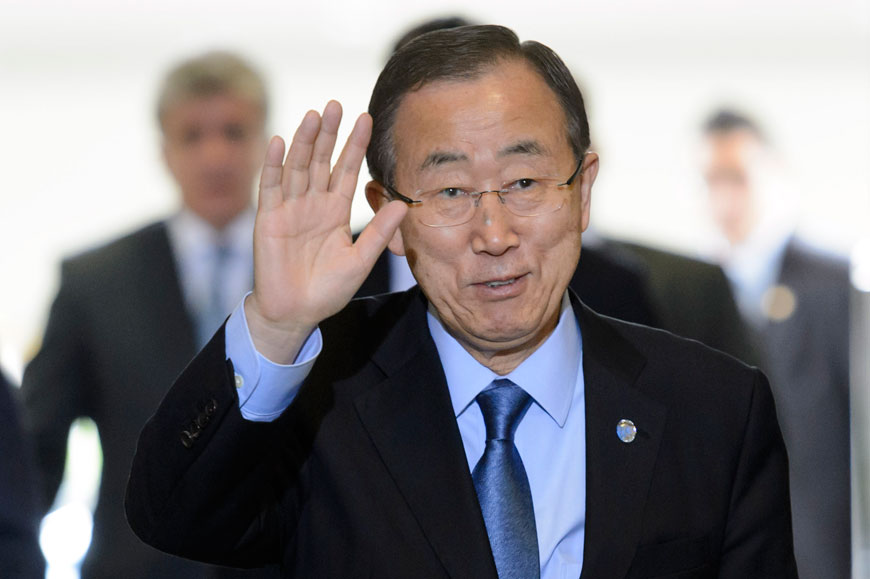SANAA — A delegation of Yemeni rebels headed Sunday for UN-sponsored peace talks in Geneva as their forces gained ground by seizing a provincial capital near the border with Saudi Arabia.
After repeatedly delaying their departure, the delegation left from the capital Sanaa aboard a UN plane for the Swiss city, where the talks are due to start on Monday, a day late.
The UN’s peace envoy for Yemen, Ismail Ould Cheikh Ahmed, said in a statement that Monday would see the start of “preliminary inclusive consultations” bringing together the country’s warring factions for the first time.
He appealed for participants to take part “in good faith and without pre-conditions, and in a climate of trust and mutual respect”.
Yemen has been wracked by conflict between Iran-backed Shiite Houthi rebels and the internationally recognised government of exiled President Abed Rabbo Mansour Hadi.
The rebels, supported by military units loyal to ex-president Ali Abdullah Saleh, have seized control of large parts of the country including Sanaa, forcing Hadi to flee to Saudi Arabia.
Fearing an Iran-friendly regime on its southern border, Riyadh has been leading a campaign of air strikes against the rebels since March 26 but has so far failed to force them from territory they have seized.
On Sunday the rebels faced little resistance as they took control of Al Hazm, the main city of Jawf province, residents and pro-government fighters said.
The city lies only 150 kilometres south of the border with Saudi Arabia.
In Yemen’s main southern city of Aden, coalition air strikes on Sunday killed 13 rebels, a military source close to them said.
Fighting raged on across several districts of Aden, residents said, accusing the rebels of firing Katyusha rockets on residential areas and destroying at least six homes.
And in Daleh farther north, six rebels and four pro-government fighters died in 24 hours of clashes, the province’s deputy governor said.
Analysts say the conflict has reached a deadlock and pressure has been mounting for an attempt at a political solution.
Calls for humanitarian truce
The rebel delegation that left Sanaa on Sunday included five representatives from the Houthis and Saleh’s General People’s Congress Party, an aviation official and a source close to the rebels told AFP.
Hassan Zaid, the head of Shiite opposition party Al Haq, was also in the delegation and two other Houthis were heading to Geneva from neighbouring Oman.
Representatives of Hadi’s government had arrived on Saturday for the talks, which had been due to start on Sunday but were delayed after the rebels refused to board a UN plane that had been scheduled for a stopover in Saudi Arabia.
The talks had first been due to take place on May 28 but were postponed.
In Geneva on Sunday for preliminary meetings, UN Secretary General Ban Ki-moon is to take part in the opening session of the talks.
He has said the negotiations are aimed at securing a ceasefire, agreeing on a withdrawal plan for the Houthis and stepping up humanitarian aid deliveries.
The delegations would “start with what we call proximity talks in two separate rooms with the hope they can be brought together,” UN spokesman Ahmad Fawzi told reporters in Geneva.
The UN Security Council and Ban have both called for a renewed humanitarian halt in the fighting following a five-day truce last month.
The Security Council this week heard a report from new UN aid chief Stephen O’Brien describing Yemen’s humanitarian crisis as “catastrophic”, with 20 million civilians in need of aid — 80 per cent of the population.
The World Health Organisation said Friday that 2,584 people had been killed in fighting in Yemen as of June 7, with 11,065 wounded.
International powers are keen for a resolution to the conflict, fearing the growing power of Al Qaeda in the Arabian Peninsula, the Yemeni branch of the jihadist network which has taken advantage of the chaos to seize territory including the southeastern city of Mukalla.
